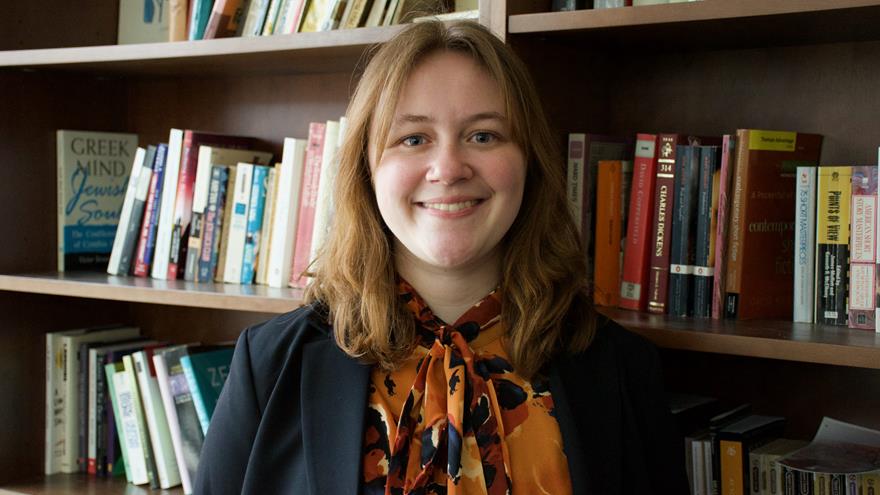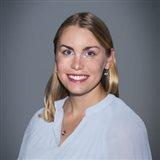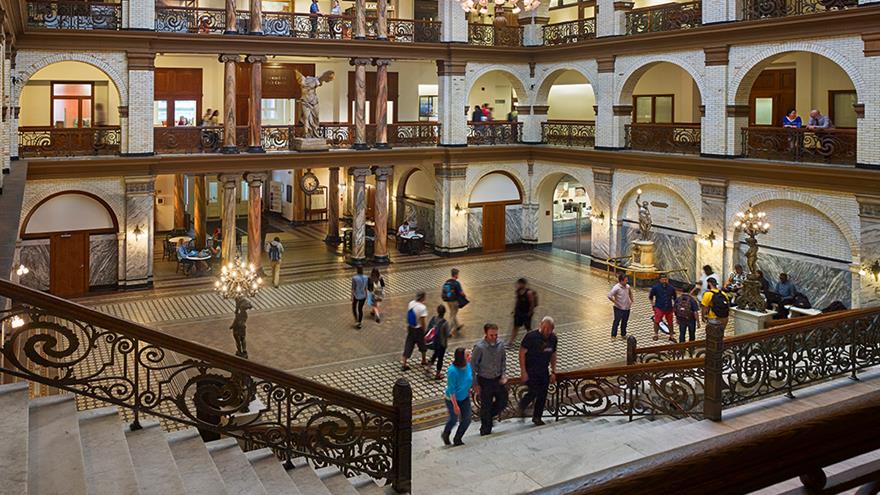Alyssa Kemp Named as 2024 Truman Scholar

Alyssa Kemp, BS/MS environmental engineering ’25, was named a 2024 Truman Scholar and is Drexel University’s second student in a row (and third ever) to earn the highly prestigious Harry S. Truman Scholarship. The Truman Scholarship is a highly competitive national fellowship given to about a select few students nationwide, which grants those students $30,000 toward three years of graduate study that leads to a career in public service. This year, just 60 students from only 54 institutions were selected as Truman Scholars.
There are a lot of things Kemp says helped them get to the long résumé they have now, and specifically, the Truman Scholarship. There was the timeline created during the Aspire Scholars Program in 2022 to track their goals, a bevy of advisers and support from faculty and professional staff.
But it was another honor — the full scholarship to Drexel from the Regeneron (formerly Intel) International Science and Engineering Fair (Regeneron ISEF) that started the road to the University and later, the Truman Scholarship. Kemp won the honor from Drexel after presenting a project at Intel ISEF in Pittsburgh about using grass buffer strips for pond eutrophication.
“From there, I toured Drexel, I fell in love with Philly, I liked the environmental engineering program and the people I met, and I knew it was the right fit for me,” Kemp said. “Without the scholarship, I probably would have stayed home in North Dakota, so being able to attend Drexel was a life-changing moment. It’s why I ended up applying to Truman and why I’ve been doing everything I’m doing now. It definitely leads back to that moment.”
Years of research and community opportunities at Drexel, including participating in the Aspire and STAR Scholars programs in the Pennoni Honors College, becoming a Nina Henderson Provost Scholar and many more, led to Kemp’s nomination as the University's candidate for the scholarship. Kemp, who is from North Dakota and was the state’s eventual winner, worked closely with Senior Associate Director of Undergraduate Research & Enrichment Programs (UREP) Leah Gates on crafting short answer questions and a policy proposal, and was interviewed virtually by the Truman Scholarship’s committee thanks to a blizzard in Minneapolis.
“I took my interview at an Honors College office and when I came out, I was greeted with Leah Gates and Roxane Lovell [UREP program manager] and their support,” Kemp said. “My interview process wasn’t super anxious because I was really supported in the office, and they prepared me so well for the interview. None of the questions felt like a surprise.”
Kemp still has one more year at Drexel to earn accelerated bachelor’s and master’s degrees but has set their sights on entering a JD program for environmental and energy law.
Q: You’re Drexel’s third-ever Truman Scholar! What did it feel like to earn this national achievement?
A: I was so excited, and I felt so validated. I knew that I felt confident in myself, but when you hear that you won, it's so exciting. I immediately wanted to call my mom and my grandmother, who are two of my biggest supporters.
It's also incredible to win it right after Sky Harper [Drexel’s 2023 Truman Scholar, currently a fourth-year chemistry student in the College of Arts and Sciences]. We're close friends and we're both Intel ISEF scholars at Drexel, and I feel like us both experiencing that background shaped this application and our experience at Drexel as a whole. I just feel honored to be part of this historic precedent of two Truman Scholars winning in back-to-back years who also happened to be at Drexel on the same scholarship. Sky’s confidence in me and my application definitely pushed me because I knew he had confidence in me, so I was like, “You know what? I can do this, too.”
Q: Now that you’ve achieved this, what does the next step look like?
A: Surprisingly, after getting two engineering degrees, I've realized with an engineering degree I can't make the impact I want to make nationwide, or on a community level. I've realized that having a JD really puts me in an amazing position to be an advocate for communities across the country to push for climate change resilience, economic development and even workforce development, which I see as a key educational initiative. I think it'll be impactful for me to have this really deep technical knowledge complemented by policy and judicial knowledge as I become a leader.
Environmental law is what I'm looking into right now, and I’m fairly confident in law school, but I want to make sure I’m grounded in that decision. I’m reaching out to people I know who are in law school to learn if the change I want to make can happen with that law degree.
Q: How did you land on environmental engineering as a primary interest?
A: Oh, that's an easy question. I started doing science fairs all the way back in fourth grade, so from fourth grade to eighth grade I was finding my footing in my interests. I went from robotics to microbiology and finally landed on environmental science and environmental engineering. Throughout high school, those are the types of projects I did, and one of those projects is why I’m at Drexel.
I looked at using grass buffer strips to prevent pond eutrophication in a state park’s lake near my house, and so the transition to environmental engineering was very natural. I realized once I got to Drexel that as my focus had grown in the environment, I got more interested in the built environment and less so in the natural space.
I did STAR after my freshman year and worked with Dr. Franco Montalto [PhD, professor of environmental engineering in the College of Engineering], and now I’m still doing research with him three years later. We did a project on urban heat islands in Hunting Park in North Philadelphia, and that’s where I first realized I could use my engineering degree to push social and environmental justice in these settings. I was meeting with civic scientists to collect temperature data in their own neighborhood. Part of that project hired community members to actually build their own umbrella stands and planter boxes for the community, so I was seeing research really empower and uplift communities to participate in their own economic and community development, which was so impactful to see at 19 years old.
Q: What are you hoping to accomplish during the rest of your time at Drexel?
A: I'm also a Community-Based Learning Project lead with the Lindy Center for Neighborhood Partnerships, which means I've been working on a project called Engineering for Social Justice. I’m creating engineering curriculum to teach engineering students at Drexel how they can use their own engineering degree to bring about social justice. I want to bring the same experience I had through STAR to the classroom. I’ve been working with Dr. Christopher Weyant [PhD, teaching professor of materials science and engineering and associate dean of undergraduate affairs in the College of Engineering] and my partner Alex Ashley [PhD student in chemical engineering] to expand this project at Drexel. There are so many things you can get involved in and I wanted to see what I could do with my time and interest to make an impact on the University and community before I leave.
Q: You’ve been a part of so many programs while at Drexel — including STAR Scholars, Aspire, SuperNova, Global Engagement Scholars, the Climate Action Plan and Nina Henderson Provost Scholars. What has left a big impact on you?
A: I feel like I have participated in almost all the programs Drexel has to offer. Being a Nina Henderson Provost Scholar was a profoundly impactful experience. It’s where I discovered environmental law and realized the importance of workforce development in the climate space. I have to give credit to my mentor on that project, Mathy Stanislaus [JD, vice provost and executive director of The Environmental Collaboratory], for shaping my experience and really pushing me to work in a space I was unfamiliar with but that I found incredibly enjoyable.
My project for that program is all about climate transition workforce development, so we’ve been partnering with workforce development organizations, government entities, private companies and even Drexel faculty internally to build the capacity in Philadelphia to train folks for green energy jobs. We want to make sure marginalized communities are hired on first, trained and ready to go, so we can diversify that field.
The reason I got interested in environmental law is partly because of Mathy. He got his degree in engineering and then went to law school and his experiences that I’ve talked to him about are exactly what I want to do. I want to work with communities to bring about environmental and social justice, but I want to do it in partnership with them and build trust throughout the process, which is something that I’ve learned to do working with the Nina Henderson program. I realized it takes a long time to start building trust with these partners and to create cohesive, noninvasive partnerships across industries. It’s a difficult task, but one that can be accomplished with time.
Drexel News is produced by
University Marketing and Communications.

